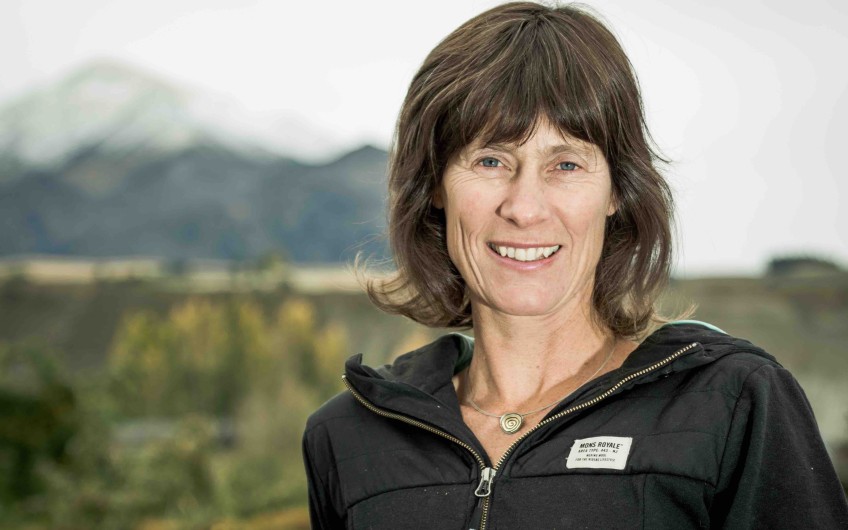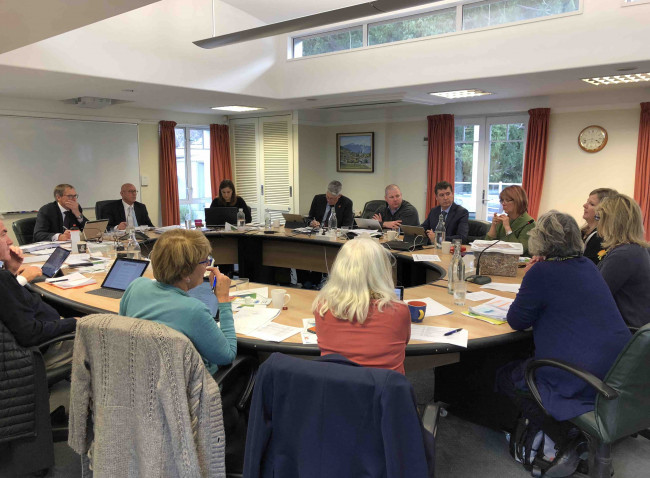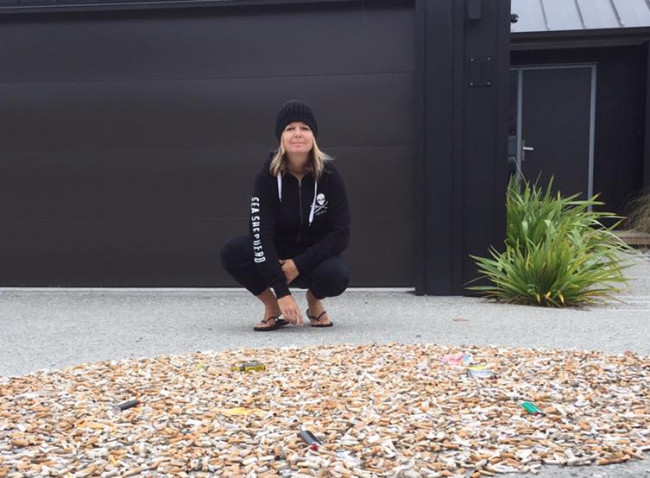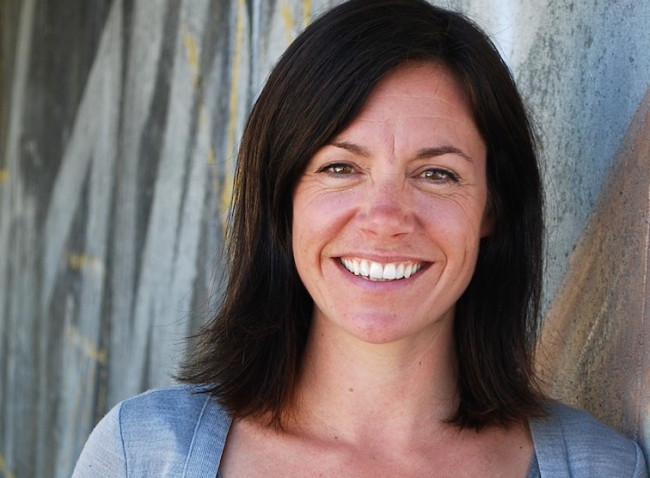
Wastebusters comes of age
I’ve never yet met a person who loves waste. But nearly everyone loves rescuing something before it gets to the landfill and making it useful again. I think that’s why everyone loves visiting Wastebusters. We get more than 100,000 visits every year to our two resource recovery centres in Wanaka and Alexandra. Few people leave empty-handed (including me - my woodshed is full of “one day when I have time” projects).
Wastebusters thinks of recycling as a way of reclaiming resources too. Our recycling staff sort every piece of recycling that comes through our gates by hand. To design our “real recycling” systems, we start at the end and work backwards. What are the needs of the companies who reprocess the recycled materials into a new product? If they need clean, colour-sorted glass to make new bottles, then there’s no point designing a system which mixes all the colours up together with other recycling materials.
Real recycling gives you a competitive advantage when there’s a global slowdown in the recycling markets, as there is right now. At the start of this year, China introduced the National Sword policy which has drastically decreased the amount of recycled plastics and paper being imported into China. Recycling is being stockpiled around the world. When there’s less demand for recycling, higher quality recycling will be bought first. And in a district like ours, where land is so costly, stockpiles of recycling become problematic very quickly.
Most people in our district know that kerbside glass recycling from Queenstown has been going to landfill since May 2016. The Queenstown Lakes District Council has(QLDC) identified sorting this out as one of its top two priorities in its draft long-term Waste Management and Minimisation Plan.
But how did we end up in this mess? Well, glass going to landfill is a legacy from a decade ago when expensive mechanical sorting facilities (MRFs) were promoted as the answer for recycling. Community recyclers, like Wastebusters, have always said that comingled collections (where all recycling is collected together and compacted before getting to the MRF) cause contamination of materials affecting their recyclability. Unfortunately it doesn’t make you feel good to be proven right when it means tonnes of glass is going to the landfill.
How you collect and handle recycling is a critical part of designing an effective recycling system. The Wanaka kerbside recycling contract was specified differently to Queenstown's, so glass is collected in a separate crate and colour-sorted at the kerbside. This different collection system means that Wanaka’s kerbside recycling glass can be made into new bottles. Effective kerbside recycling systems also rely on good communication with residents so that they understand what materials go in which bin and how to avoid contamination. Our experience in Wanaka is that people are generally very supportive of recycling and want to do it properly, they just need to know how.
Wastebusters doesn’t hold the kerbside recycling contract in Wanaka, but we do recycle a lot of glass, especially in the summer. We collect recycling from events and businesses in Wanaka, Hawea, Cromwell and Alexandra, as well as through our recycling centre drop-offs in Wanaka and Alexandra, and rural drop-offs in Central Otago. All the glass that comes in to Wastebusters for recycling is sorted by hand into different colours so it can be made into new bottles. We get a lot of feedback that people and businesses are relieved they can trust us to recycle their glass.
Wastebusters also recycles “marginal” materials, many of which go to landfill in other towns, including polystyrene, used engine oil, eco-bulbs and clean industrial shrink-wrap. We provide user-pays electronic waste recycling at our site in Wanaka. Queenstown residents can recycle their electronic waste at the transfer station in Frankton for the same prices, and we go over regularly to pick a load up and bring it back to Wastebusters for recycling. We’ve also done some pick-ups of electronic waste for large businesses like hotels. Electronic waste is the fastest growing waste stream, and contains toxic materials which we don’t want to put into the landfill.

Gina Demspter of Wastebusters. "No longer the hippies at the end of Ballantyne Rd."
One misconception that many people have about Wastebusters is that we’re council funded. In fact, Wastebusters is a social enterprise which operates completely independently. We have held contracts with councils over the years, in the same way that private recycling and waste companies do. Currently we hold a small zero waste education contract with Queenstown Lakes District Council, which covers Enviroschools and Zero Waste education to schools in our district, and the Dr Compost Home Composting project. We also hold a contract with Central Otago District Council to run the recycling drop-offs in Central Otago.
In 2012, the Queenstown Lakes District Council signed a 35 year lease with Wastebusters for the Wanaka site. Once we had the security to be there longterm, we could put our energy into making the site a hub for resourceful activities including education and upcycling.
But how exactly does a social enterprise work? Well, we operate as a business, but our driving motivation is to lead the way to zero waste, rather than to make a profit. We spend our surplus income on bringing zero waste closer to reality. Our self-funded zero waste work (like extending the Enviroschools programme to early learning centres and youth groups) is so integrated into our other work that we find it hard to split it out. That’s one thing we can definitely get better at – taking time to tell more people about all our zero waste work instead of spending all our time doing it!
Once we were the hippies at the end of Ballantyne Rd. Now Wanaka has expanded to our doorstep and we’ve found ourselves at the forefront of the latest thing in business thinking. Social enterprise is getting a lot of kudos as a way of using business to achieve social and environmental missions. Auckland Council has been replicating the Wastebusters model of community recycling in Auckland, so it’s fair to say we’re seen as a success story of social enterprise.
Wastebusters always does its best to support waste reduction initiatives in the community, for example, by sponsoring recycling and/or reuse for school events and community organisations. We’ve been on board with Plastic Bag Free Wanaka (PBFW) since it was started three years ago. Wastebusters is like a proud mama watching PBFW grow into its own wee social enterprise. We love the inspiring community events and the ethos of making it fun to break the disposable plastic habit.
It’s exciting to see Sustainable Queenstown hosting similar events and creating community conversations in Queenstown. They’ve created real community momentum for waste reduction in Queenstown. The council provides a free recycling drop off service in Queenstown, so it would seem fair to resource an equivalent service in Wanaka too.
So can we really get to zero waste as a district, or even a nation? Well, if we head in the right direction with a good tailwind, we will make it. Ways we could get the tailwind blowing are:
Phasing out single-use plastic, like coffee cups and plastic bags,
Introducing a deposit-refund system in New Zealand for bottles and cans (a major boost for tourist regions like ours, where a limited number of ratepayers are providing recycling services for so many visitors),
Using recycling, waste and zero waste education contracts to achieve best outcomes rather than cheapest cost, including using social procurement to deliver extra environmental and/or social benefits,
Raising the waste levy above $10 per tonne, to provide incentives to avoid using the landfill.#
Gina Dempster was once a derivatives risk analyst but retrained as a journalist to tell environmental stories that weren't being heard. She has been the communications manager at Wastebusters for 11 years. Gina loves that Wastebusters always puts the big picture of how to get to zero waste first, and that she gets to work on both a local and national level (plus it's a great place to find her next upcycling project). She believes that living resourcefully can be more fun, especially when you commute by electric bike.





























